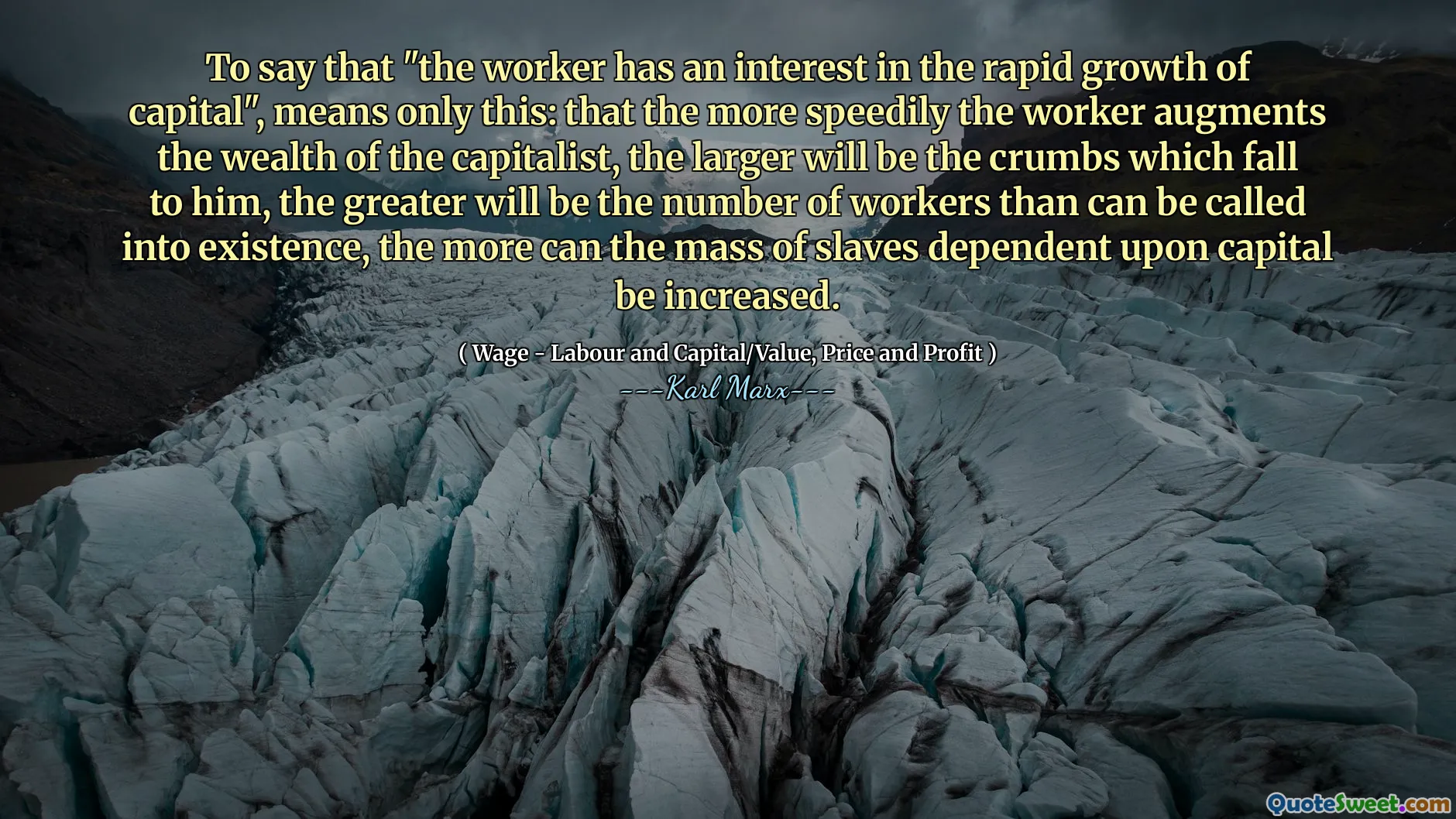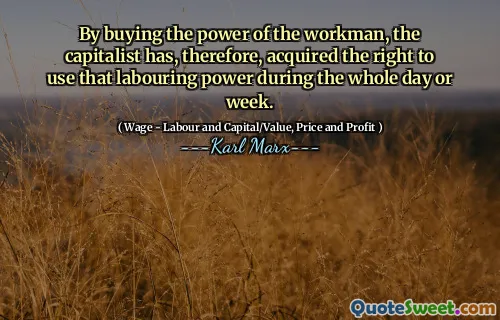
To say that "the worker has an interest in the rapid growth of capital", means only this: that the more speedily the worker augments the wealth of the capitalist, the larger will be the crumbs which fall to him, the greater will be the number of workers than can be called into existence, the more can the mass of slaves dependent upon capital be increased.
This quote by Karl Marx incisively critiques capitalist dynamics and the relationship between labor and capital. At first glance, it might seem that workers benefit from the rapid expansion of capital since it ostensibly creates more wealth and opportunities. However, Marx highlights the brutal irony underlying this assumption: the increase in wealth primarily serves the capitalist, while workers receive only the "crumbs"—a metaphor for the small, disproportionate gains shaken loose from a vastly larger accumulation of capital. Instead of emancipation or genuine prosperity, this process expands the workforce that becomes dependent on capital, describing them as "slaves" bound by economic necessity rather than literal chains. The imagery forces us to confront the systemic exploitation inherent in capitalism, where growth often correlates not with widespread improvement but with the deepening of inequality and dependence. It is a stark reminder that under such systems, wealth generated does not naturally redistribute or elevate all participants fairly. Instead, growth can entrench structures of dependency and subjugation. This perspective invites readers to critically assess assumptions about economic progress and raises important questions about workers’ true interests within capitalist systems. It challenges the narrative that the rapid growth of capital is equally beneficial, urging a re-examination of power imbalances and the structural changes needed to secure genuine equity and dignity for workers.


